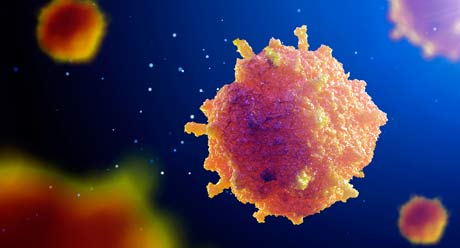IND Open: CellCentric expanding clinical trials into the US

P300/CBP is an emerging target offering a new path to treat specific cancers. CCS1477, developed by CellCentric, is a small molecule inhibitor of the twin regulator proteins, and formulated as an oral capsule. CCS1477, a first-in-class compound is in parallel strands of clinical trials to treat endocrine resistant prostate cancer, haematological malignancies and targeted tumours (with particular mutations or molecular drivers). These are all significant clinical unmet needs. Following Phase 1b dose escalation and schedule setting conducted at 16 centres in the UK, CellCentric’s clinical programme is expanding into the US, with the FDA opening an IND for CCS1477 for solid tumours.
CellCentric’s first-in-class p300/CBP inhibitor CCS1477 publishes in Cancer Discovery

CellCentric has developed the first p300/CBP inhibitor of its kind, to treat targeted types of cancer. Today’s cornerstone Cancer Discovery publication summarises CCS1477 and its translational data, mapping the drug’s mechanism of action through to specific biological effects seen in late-stage prostate cancer patients. CCS1477 represents a new way to tackle large and clear clinical unmet needs; for prostate cancer patients whose tumour has progressed despite existing therapeutic options, including enzalutamide or abiraterone; for patients with haematological malignancies, including acute myeloid leukaemia, multiple myeloma and non-Hodgkin’s lymphoma; and for other molecularly targeted tumours.
CellCentric raises $33m to broaden clinical trials of its first-in-class p300/CBP inhibitor, CCS1477

CCS1477 is a novel drug in Phase I/II clinical trials to treat late stage prostate cancer, haematological malignancies as well as tumours with specific drivers (AR, MYC, or p300/CBP mutations). Based on the early data to date, CellCentric has gained further funding from Morningside Venture Investments to expand its clinical evaluation programme. Over 10 hospital sites are active in the UK, with clinical operations coming on board into the US, and then Europe early 2021.
CellCentric signs agreement with the PCCTC for Phase II clinical trial expansion into the US

CellCentric has developed CCS1477, the first p300/CBP inhibitor of its kind, for use in the treatment of multiple cancer types. The drug will transition into Phase II dose expansion clinical trials this summer. Expanding on UK-based clinical activities, the company is set to open US clinical sites for patient recruitment this summer.
ellCentric has signed an agreement with the Prostate Cancer Clinical Trial Consortium, LLC (PCCTC), headquartered in New York, to help select and manage US sites for the ongoing evaluation of CCS1477. Overall management of the clinical programme will be retained by CellCentric’s clinical team based at Alderley Park, Manchester.
CellCentric starts dosing patients in blood cancer trial, expanding clinical testing of CCS1477

CCS1477 is the first drug to be used in patients that specifically targets p300/CBP, offering a new route to treat specific drug-resistant cancers. A clinical trial in late stage prostate cancer is already well underway across multiple clinical centres, under the leadership of Johann de Bono of the Royal Marsden Hospital, Institute of Cancer Research, London. Dosing in patients with haematological malignancies has now begun in a new study, starting at the Christie Hospital, Manchester.
CellCentric presents CCS1477 at AACR: New Drug on the Horizon

CellCentric’s first-in-class small molecule p300/CBP inhibitor, CCS1477, has been selected for the ‘New Drugs on the Horizon’ session at the prestigious annual American Association for Cancer Research (AACR) meeting, this year being held in Atlanta. CellCentric’sResearch Director, Neil Pegg, will be presenting on March 31st 2019. Neil’s presentation will include the first disclosure of the chemical structure of the molecule. The compound is now in Phase I patient clinical testing, initially for prostate cancer, moving on to haematological malignancies.
CellCentric enters clinic with first-in-class p300/CBP inhibitor for late-stage prostate cancer

CellCentric enters clinic with first-in-class p300/CBP inhibitor for late-stage prostate cancer
CellCentric raises $26 million to take first-in- class p300/CBP inhibitor into the clinic

CellCentric has raised $26 million in private financing to fund clinical testing of its first-in-class oncology drug candidate CCS1477. The funds will be used to test the novel p300/CBP inhibitor in late stage, treatment-resistant prostate cancer (up to Phase IIb). Recent data shared at AACR also highlighted the potential of CCS1477 in a range of […]
CellCentric at AACR 2018: first-in-class p300/CBP inhibitor drug candidate, for prostate cancer and beyond

CellCentric’s oral drug candidate CCS1477 addresses the large and growing population of late stage prostate cancer patients who have inherent or acquired resistance to current second-line anti-androgen therapies. It can be used after or in combination with abiraterone (Zytiga), enzalutamide (Xtandi) and apalutamide (Erleada). New pre-clinical data is presented today at the annual American Association of Cancer Research (AACR) meeting, Chicago, supporting its targeted use not just for prostate cancer (CRPC), but also for other indications including certain haematological cancers (AML and multiple myeloma).
AACR poster 2018: http://www.cellcentric.com/aacr-poster-2018.
CellCentric’s first-in-class p300/CBP inhibitor drug CCS1477; capsule production complete ready for the clinic

Production of CCS1477 in capsule form is now complete, ahead of forthcoming first-in-human clinical trials to investigate the novel drug’s tolerability and efficacy in treating late stage prostate cancer (CRPC). The active component is a p300/CBP bromodomain inhibitor that has a profound effect on the drivers of CPRC. It addresses the resistance seen in tumours treated with current second generation anti-hormonal drugs. Formulation and GMP manufacture of the capsules was carried out by Quay Pharma.